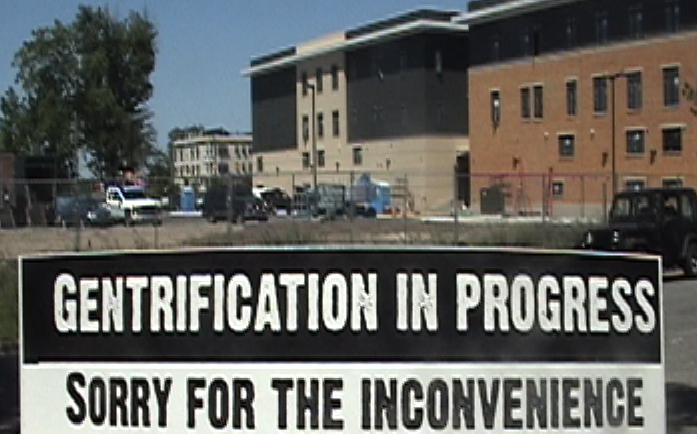 Gentrification has been in the news a lot lately among the intelligentsia. I liked but didn't love this recent article in The Atlantic called "In Defense of Gentrification." It is absolutely true that displacement is rarer than people think, that improving a neighborhood or public school is a huge plus for the long-timers that do stay put, and that an influx of new investment/residents/activity in an area has positive implications for a city and school district as a whole. It is unfortunate that we cry foul about gentrification - either for or against - without delving deeper into what is obviously a much more nuanced and complex dynamic. And it is sad that we say we desire socio-economic diversity and yet get so riled up when rich people want to move into a poor neighborhood or vice versa.
Gentrification has been in the news a lot lately among the intelligentsia. I liked but didn't love this recent article in The Atlantic called "In Defense of Gentrification." It is absolutely true that displacement is rarer than people think, that improving a neighborhood or public school is a huge plus for the long-timers that do stay put, and that an influx of new investment/residents/activity in an area has positive implications for a city and school district as a whole. It is unfortunate that we cry foul about gentrification - either for or against - without delving deeper into what is obviously a much more nuanced and complex dynamic. And it is sad that we say we desire socio-economic diversity and yet get so riled up when rich people want to move into a poor neighborhood or vice versa. But what is equally true is that, for a variety of reasons, we are becoming a more socio-economically polarized society, and that the poorest among us are getting poorer (in resources) and weaker (in influence). And how we respond to this should matter, whether we are rich or poor, free-market or socialist.
Now, we can and ought to disagree about what actually to do. You know that I am a fairly cold-blooded capitalist who is leery of the efficacy of top-down public sector action. Hopefully even the most pro-government person around understands - conceptually and in the real world - that trying to do good through government mechanisms is fraught with all kinds of unintended consequences. But a completely laissez-faire approach doesn't do much better. The whole social justice movement is predicated on the belief, which I assume everyone would agree is true, that those who have been systematically denied of power will always get screwed, either consciously or unconsciously, by everyone else.
So there you have it. We need to act decisively and intentionally in order to do right by the poorest and most marginalized among us, but actually doing so in ways that are even remotely positive (let alone hugely transformational) is far easier said than done in the day to day. This is quite the challenge for our times.


No comments:
Post a Comment